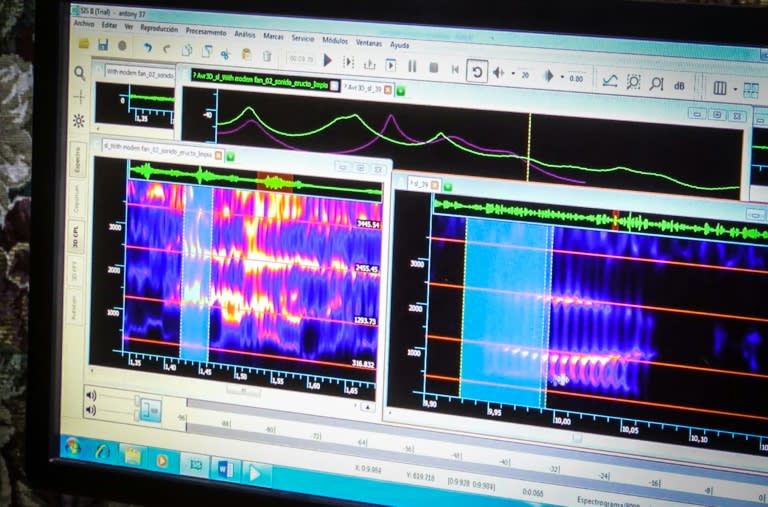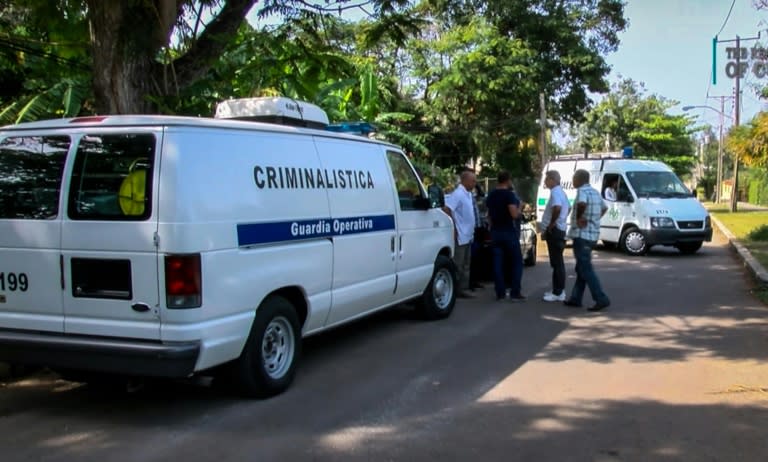Bizarre 'attacks' drama rolls on between US, Cuba
The probe into mysterious attacks that sickened US diplomats in Cuba is still causing tension, with Havana now accusing the United States of impeding its attempts to probe what happened. - Back and forth accusations - Since the case was first revealed in August, the US has stopped short of formally blaming the Cuban government. But US President Donald Trump said in mid-October that he holds Cuba responsible -- and the White House has said it believes Cuba could bring the attacks to a halt. Cuban state TV aired a documentary Thursday night that smacked of a counter offensive, with a senior Interior Ministry official rejecting any responsibility and accusing the Americans of failing to cooperate. A doctor on the investigative team, Manuel Villar, said Washington has refused to share the medical records of those affected by the attacks or let US doctors talk to Cuban ones. "There was zero cooperation and we have had only communications about these events that, in our opinion, were not expert-level, said Villar. Cuba insists it has shown good will by letting FBI investigators visit the island three times this year. Ignoring these arguments, in late September Washington withdrew more than half of its diplomatic staff in Cuba and expelled 15 Cuban diplomats from Washington. For a month now the Americans have stopped issuing visas for Cubans to go to the United States, a move Cuba calls unjustified. By adopting these measures without waiting for the results of the investigation, President Donald Trump and Secretary of State Rex Tillerson "are putting relations with Cuba in a real jam, with no prospects for a way out of the crisis," said Arturo Lopez-Levy, a lecturer at the political science department of the University of Texas-Rio Grande Valley. - So what happened? - Beyond the diplomatic crisis, the two sides disagree on what is at the root of these weird happenings that are the stuff of a spy thriller. Those affected have exhibited physical symptoms including hearing loss, headaches, nausea, cognitive issues, and difficulty sleeping. US officials have said the attack -- which affected at least 24 diplomats at diplomatic residences and hotels in Cuba from November 2016 to August of this year -- may have been carried out with some kind of covert acoustic device. The documentary aired Thursday night refutes that. It said there is no evidence to confirm what may have caused these symptoms. Cuba says its experts analyzed samples taken from around the residences and hotels in question and came up with no evidence, having considered the possibility of other causes like toxins, electromagnetic waves or even insects. Last week US news outlets broadcast what one victim said was a cricket-like sound recorded on their cell phone. But experts said the recording did not clarify anything. "As it is, the sound does not seem to be able to produce any damage," said Kausik Sarkar, a professor of engineering at George Washington University, who studied it in his lab. Many experts in the US and Cuba question what purpose such attacks would serve, but Peter Earnest, director of the International Spy Museum in Washington, said several organizations "studied the use of sound, the weaponization of sound." Denis Bedat, a French specialist in bio-electromagnetics, said it would be hard to discretely aim infrasonic waves -- below the human capacity to hear -- at something or someone because it would require a powerful amplifier and big speaker to cause physical damage. But he said firing off harmful ultrasound -- above the frequency people can hear -- with an undetectable device is "quite plausible from a technical standpoint," for instance from far away using an antenna or up close to the target using a small box. "I've seen reports of attacks in hotels, and that is very strange. It could be a sort of by-product. It could be some industrial activity going on, or an operation gone awry," said Earnest. Earnest agreed with other experts in saying he cannot fathom Cuba taking part in such attacks right as it trying to get its ties with the United States back on track. Full diplomatic ties were restored in 2015 after a half century of Cold War enmity. Earnest, a 35-year veteran of the CIA, said "I never heard anything like this."



